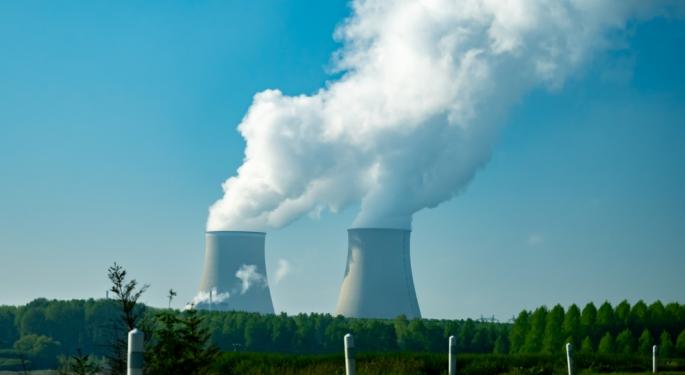Nuclear Energy Back On The Table As World Bank Lifts Funding Freeze
The World Bank has lifted its ban on funding nuclear energy projects in developing countries. Its president, Ajay Banga, announced the decision on Wednesday, opening the door to financing a sector increasingly seen as a solution to meeting demand for reliable, low-emission energy.
"While the issues are complex, we've made real progress toward a clear path forward on delivering electricity as a driver of development," Banga said, according to Reuters.
"Countries must be able to determine their own energy mix," he added, clarifying the bank's willingness to support natural gas infrastructure when it aligns with development and climate goals.
Although the World Bank formally halted its support for nuclear power in 2013, the policy had been in place for over six decades—the bank's last nuclear investment was in 1959, when it issued a $40 million loan for Italy's first reactor. Safety concerns, particularly after the 2011 Fukushima disaster, solidified a de facto freeze that has only now been lifted amid rising demand for low-carbon baseload power.
The International Energy Agency predicts that electricity demand will accelerate significantly through 2027; therefore, the urgency for scalable, non-intermittent solutions is pressuring the market.
"This is not the bank's first foray into nuclear power as a means of promoting sustainable economic growth," said Jennifer Gordon, Director at the Atlantic Council. She and her colleagues see the World Bank's decision as a "pragmatic" step that could help level the playing field against state-backed financing from Russia and China. "It sends a clear signal to other institutions that nuclear is back on the table," Gordon added.
The move is strategic for the United States, home to the bank's largest shareholder. Washington has been promoting advanced nuclear technology as part of its international development agenda, aiming to challenge Moscow and Beijing's dominance in the sector.
By unlocking World Bank financing, U.S. firms could gain a competitive edge in reactor exports and deployment across Africa, Southeast Asia, and beyond.
Momentum is also shifting in developed nations. Sweden, which accounts for 80% of Europe's uranium reserves, is reversing its 2018 uranium mining ban and preparing to start constructing a new nuclear power plant before 2026, according to Nucnet.
That is good news for uranium explorers, such as District Metals (OTCQB:DMXCF), which controls the Viken deposit in Sweden, the world's second-largest undeveloped uranium resource, with 176 million pounds of indicated uranium oxide (U₃O₈) and 1.53 billion pounds of inferred uranium oxide. The stock is up 43.75% year-to-date.
Read Next:
Photo by barmalini via Shutterstock
© 2025 Benzinga.com. Benzinga does not provide investment advice. All rights reserved.
Posted-In: Equities News Emerging Markets Financing Commodities Legal Global Top Stories



